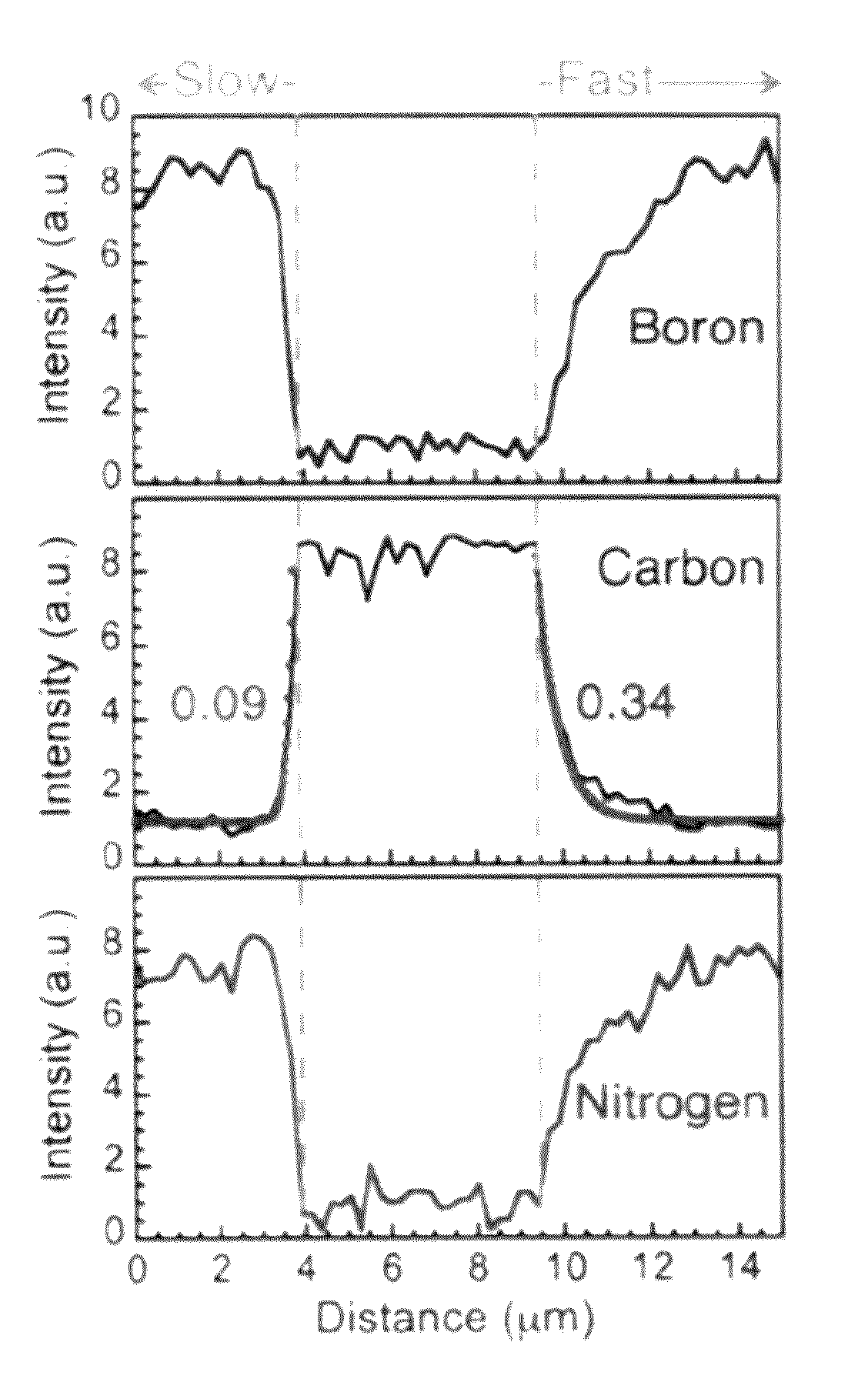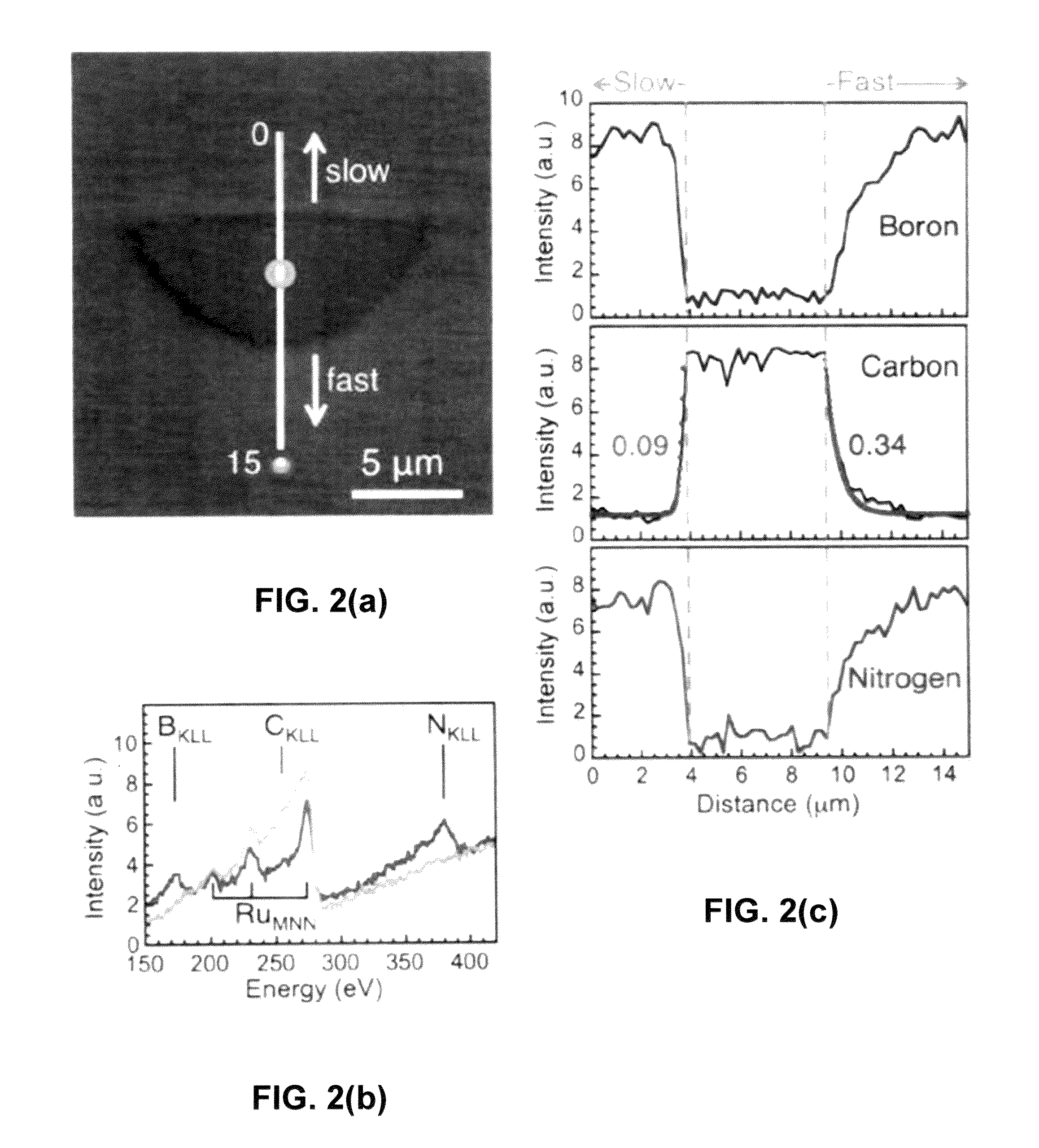Method for forming monolayer graphene-boron nitride heterostructures
a graphene-boron nitride and heterostructure technology, applied in the direction of crystal growth process, polycrystalline material growth, chemically reactive gas growth process, etc., can solve the problem of not addressing the interface formation between graphene and boron nitride domain, and not offering any insight into, heretofore known or understood problems
- Summary
- Abstract
- Description
- Claims
- Application Information
AI Technical Summary
Benefits of technology
Problems solved by technology
Method used
Image
Examples
Embodiment Construction
[0046]Reference will be made in detail to embodiments, examples of which are illustrated in the accompanying drawings. The disclosed embodiments may have different forms and should not be construed as being limited to the descriptions set forth herein. Accordingly, the embodiments are merely described below, by referring to the figures, to explain aspects of the present description.
[0047]The present discovery is based on the formation of synthesized monolayer graphene boron nitride heterostructures on a ruthenium surface, during which elimination of C adatoms on the ruthenium surface can limit or be otherwise used to regulate the degree of intermixing at the interfacial region between monolayer graphene and h-BN (hexagonal boron nitride, and as used herein interchangeably simply boron nitride) domains. The discovery also stipulates that 2D membranes comprising mixed ternary (alloy) phases with arbitrary C—B—N composition (between the two endpoints, BN and graphene, i.e., pure C) can...
PUM
| Property | Measurement | Unit |
|---|---|---|
| pressure | aaaaa | aaaaa |
| temperature | aaaaa | aaaaa |
| pressure | aaaaa | aaaaa |
Abstract
Description
Claims
Application Information
 Login to View More
Login to View More - R&D
- Intellectual Property
- Life Sciences
- Materials
- Tech Scout
- Unparalleled Data Quality
- Higher Quality Content
- 60% Fewer Hallucinations
Browse by: Latest US Patents, China's latest patents, Technical Efficacy Thesaurus, Application Domain, Technology Topic, Popular Technical Reports.
© 2025 PatSnap. All rights reserved.Legal|Privacy policy|Modern Slavery Act Transparency Statement|Sitemap|About US| Contact US: help@patsnap.com



